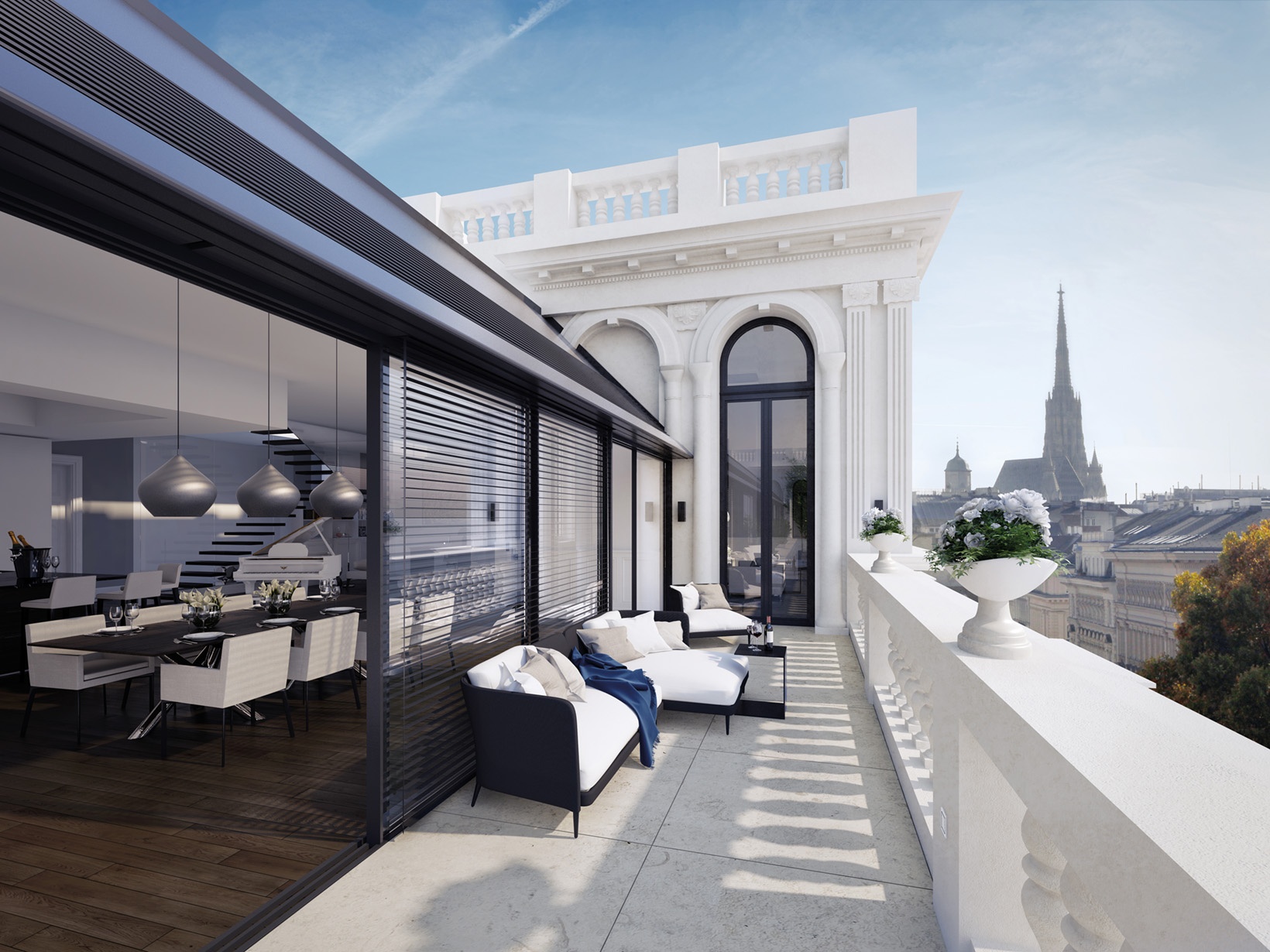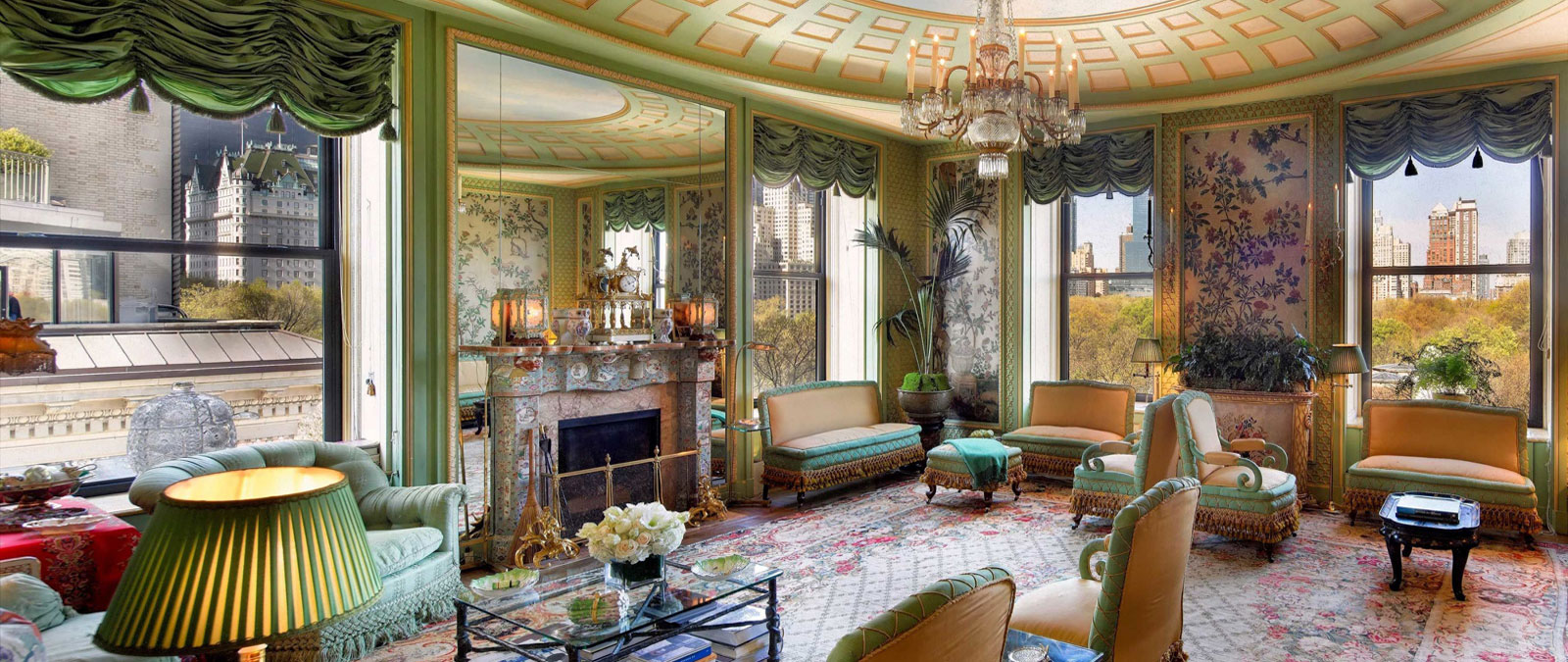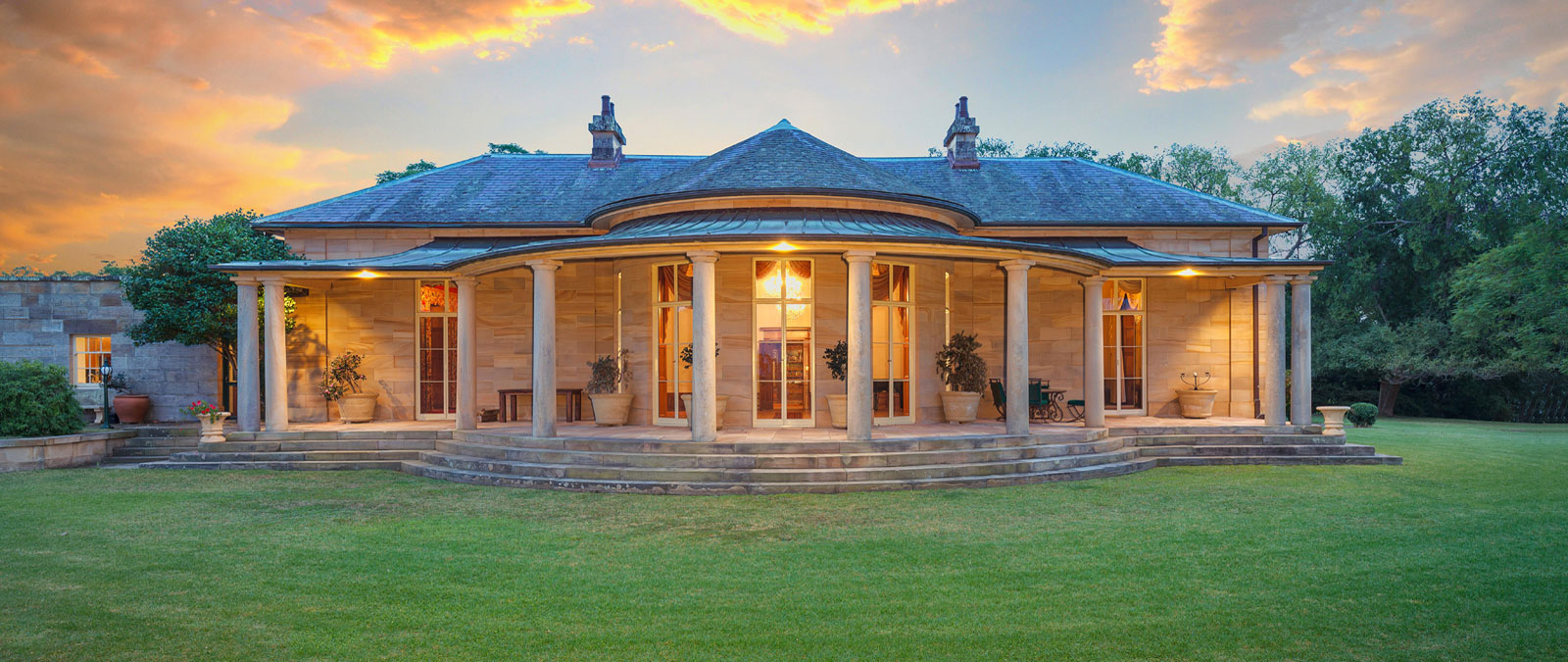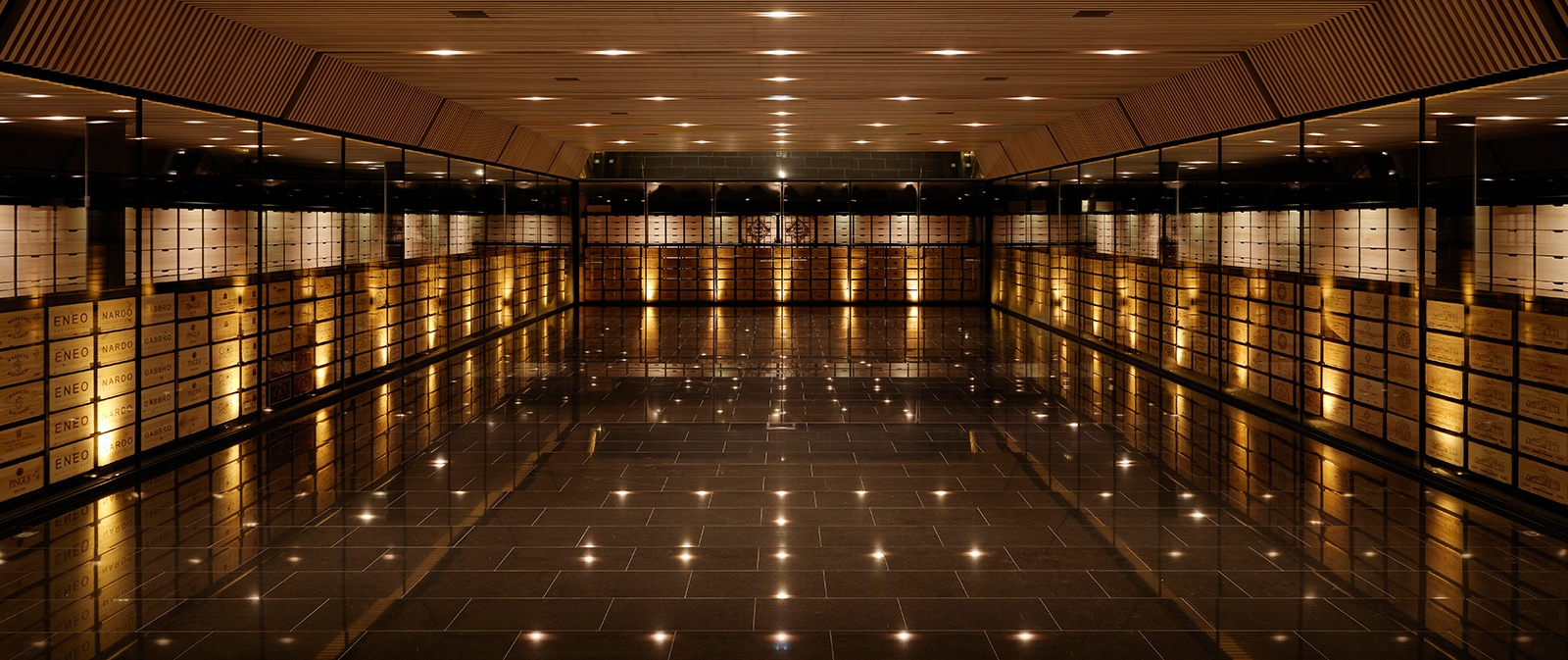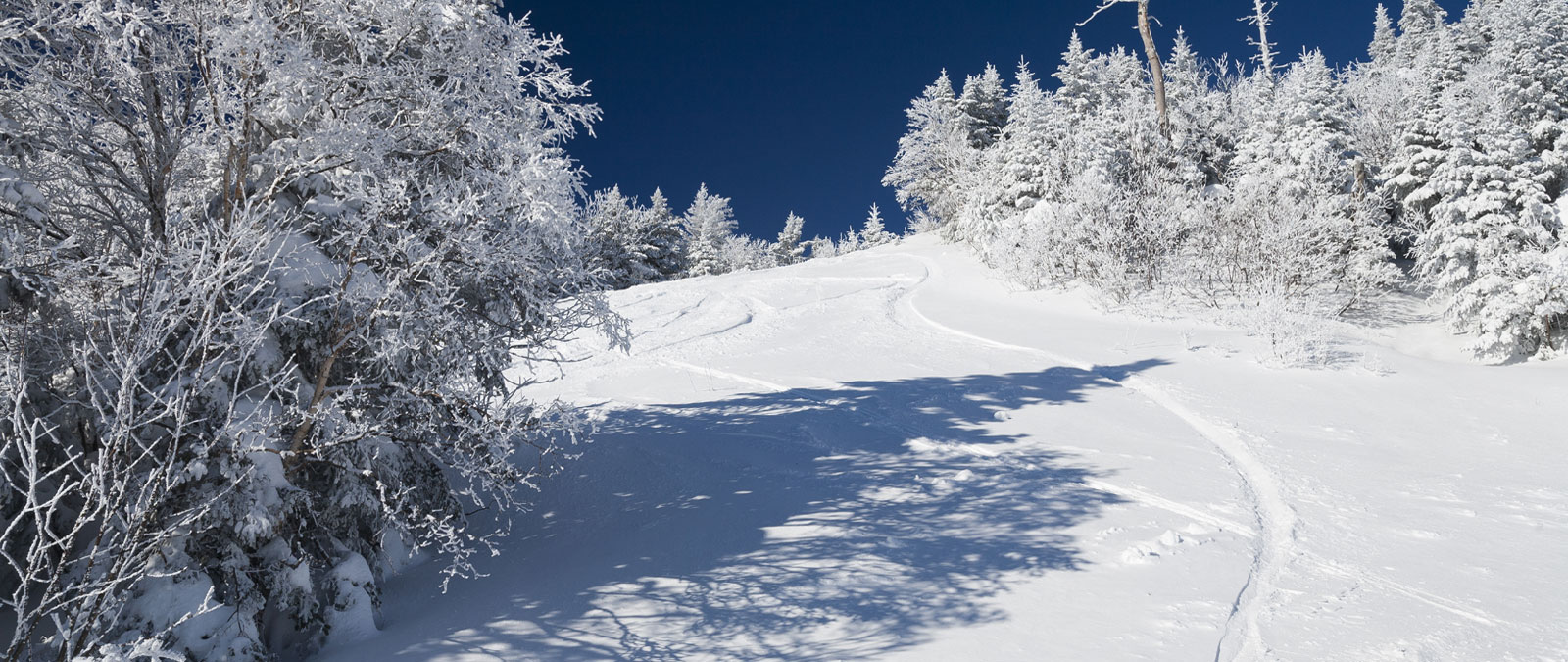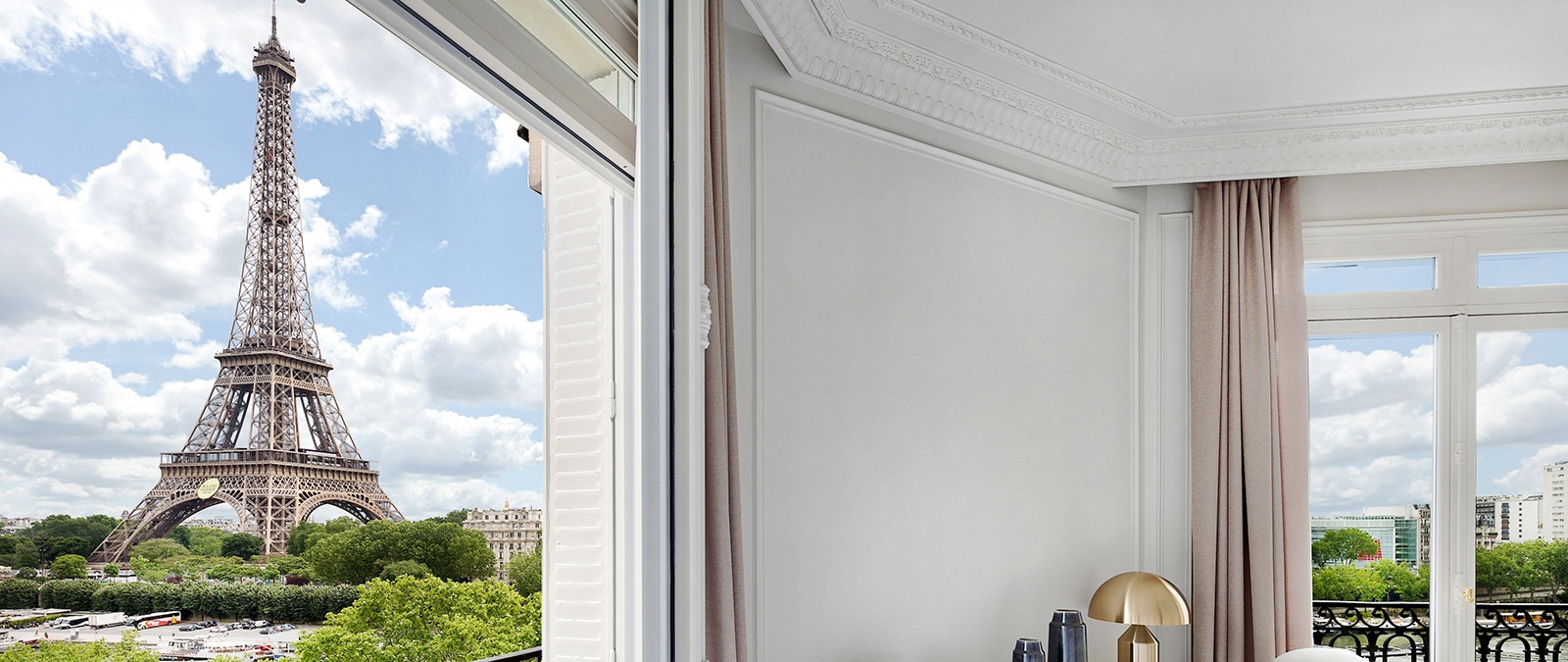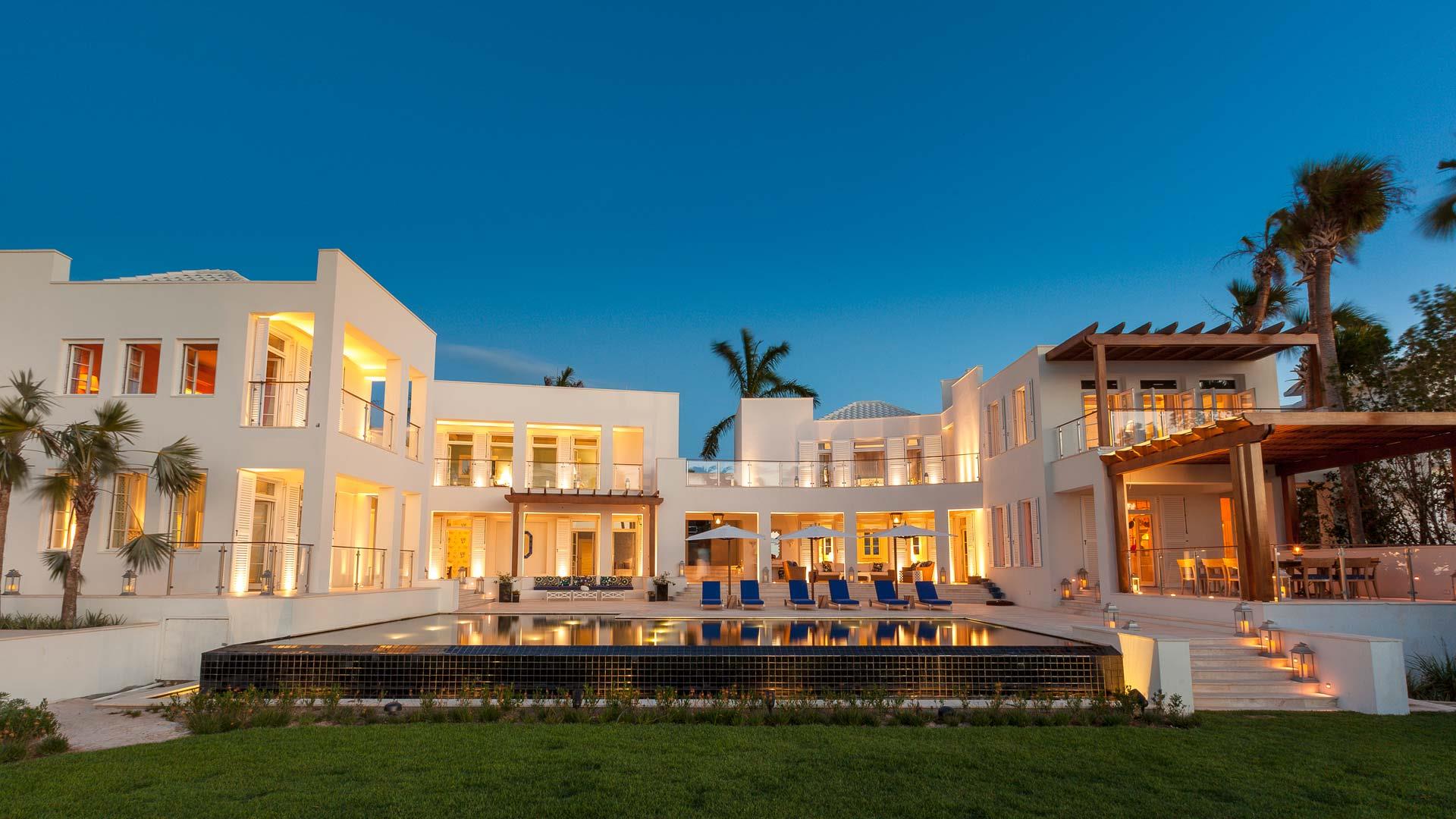They say that travel broadens the mind. After moving to New York from Los Angeles, Elisabeth Condon traveled to Europe for art projects and residencies. She then ventured to Asia, spurred on by a fascination with the scrolls of the Song Dynasty painters. Here, she reveals some of her early influences and current techniques.
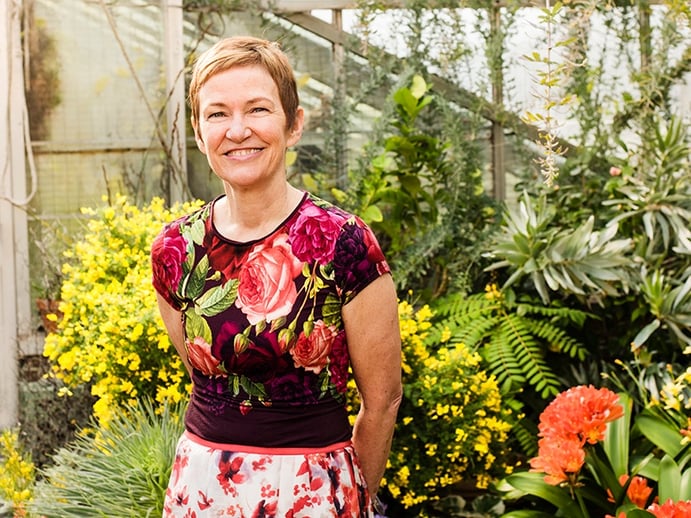 I grew up on Moraga Drive in Los Angeles, a small street near Mulholland Drive abutting a canyon. The neighborhood was idyllic: eucalyptus and palm trees, bougainvillea, and ice plant surrounded modernist homes on winding streets. Later we moved to Encino, where my mother decorated enthusiastically, informing my current work, which is inspired by the wallpaper and fabric patterns she chose.
I grew up on Moraga Drive in Los Angeles, a small street near Mulholland Drive abutting a canyon. The neighborhood was idyllic: eucalyptus and palm trees, bougainvillea, and ice plant surrounded modernist homes on winding streets. Later we moved to Encino, where my mother decorated enthusiastically, informing my current work, which is inspired by the wallpaper and fabric patterns she chose.
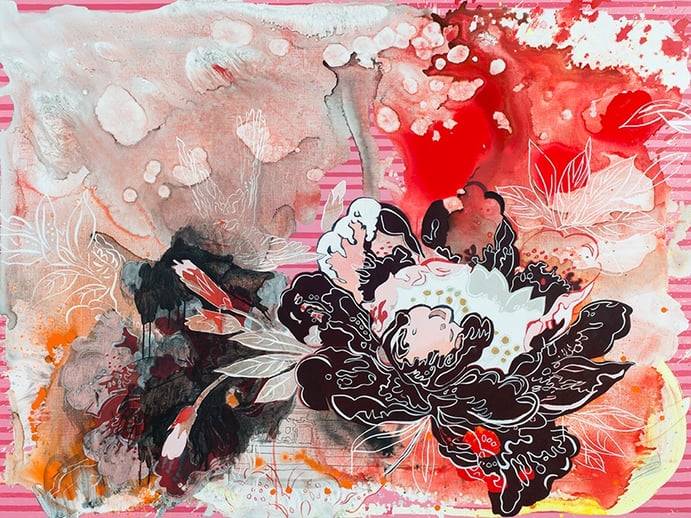 Décor, illustrations, and museum works combine to form my earliest memories of art. Our house on Moraga Drive was decorated in Hawaiian Modern style. A Goji harlequin in my sister’s bedroom and the illustrations in a poetry edition of World Book’s children’s encyclopedia were other, immediate influences that merge in memory with Degas’s ballerinas, Monet’s Poplars series, and Matisse’s Tea (1919) at LACMA.
Décor, illustrations, and museum works combine to form my earliest memories of art. Our house on Moraga Drive was decorated in Hawaiian Modern style. A Goji harlequin in my sister’s bedroom and the illustrations in a poetry edition of World Book’s children’s encyclopedia were other, immediate influences that merge in memory with Degas’s ballerinas, Monet’s Poplars series, and Matisse’s Tea (1919) at LACMA.
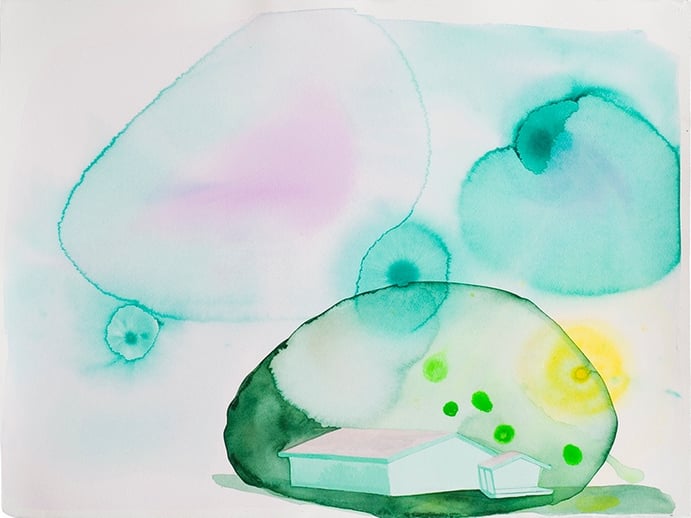 My childhood ambition was to be an artist, without knowing exactly what that meant. The world of art always drew me in. To express oneself visually, communicating beyond words to direct experience, provides the ultimate freedom.
My childhood ambition was to be an artist, without knowing exactly what that meant. The world of art always drew me in. To express oneself visually, communicating beyond words to direct experience, provides the ultimate freedom.
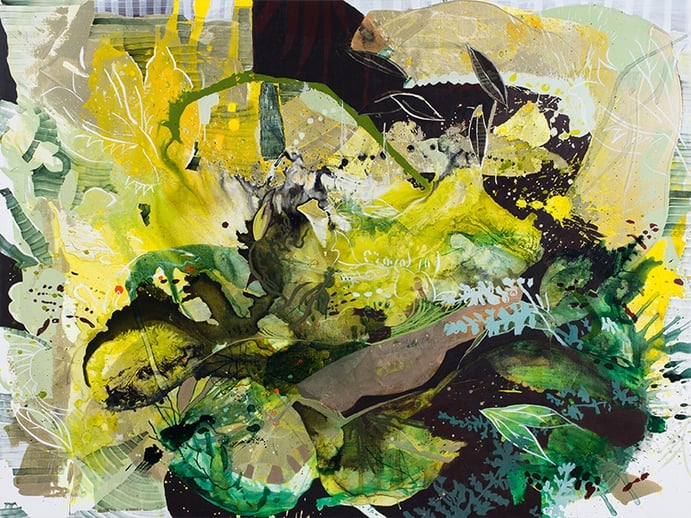 I majored in art, studying conceptual practices and the history of film at the University of California San Diego before transferring to University of California Los Angeles and Otis Art Institute of Parsons School of Design, where my interests shifted to painting, ultimately graduating from the School of the Art Institute of Chicago. Art was always my path, and I am fortunate to show my work in dialog with other artists. Painting is how I process information: as [the painter] Philip Guston said, “I have to see it.”
I majored in art, studying conceptual practices and the history of film at the University of California San Diego before transferring to University of California Los Angeles and Otis Art Institute of Parsons School of Design, where my interests shifted to painting, ultimately graduating from the School of the Art Institute of Chicago. Art was always my path, and I am fortunate to show my work in dialog with other artists. Painting is how I process information: as [the painter] Philip Guston said, “I have to see it.”
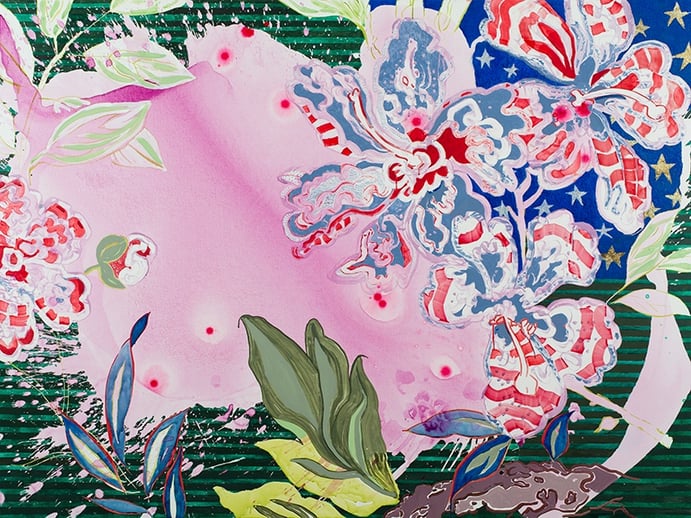 My paintings are synthetic landscapes that combine real and imaginary worlds. They overlay patterns with different spaces, direct and indirect processes. I begin each canvas with its back on the floor, pouring and spilling color. The pours create random and inventive spaces that excite imagination and improvisation. Adding bits of sketches made in Asia, Europe, the US—or my mother’s fabric or wallpaper patterns—balances multiple paint applications and materials, contrasting line with pour, for example, translucent color with glitter, or imagery with washes of color.
My paintings are synthetic landscapes that combine real and imaginary worlds. They overlay patterns with different spaces, direct and indirect processes. I begin each canvas with its back on the floor, pouring and spilling color. The pours create random and inventive spaces that excite imagination and improvisation. Adding bits of sketches made in Asia, Europe, the US—or my mother’s fabric or wallpaper patterns—balances multiple paint applications and materials, contrasting line with pour, for example, translucent color with glitter, or imagery with washes of color.
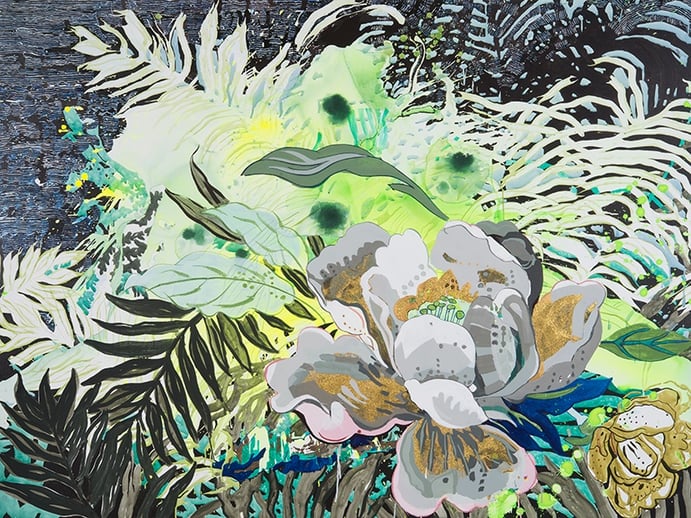 Travel clarifies the interaction of mechanical and natural worlds. It also renders time and place permeable, like a scroll unfurling through space. I began to envision landscape as a container for disparate elements to co-exist. Likewise, if the edges of a painting hold any and every thing within them, painting becomes like taking a trip.
Travel clarifies the interaction of mechanical and natural worlds. It also renders time and place permeable, like a scroll unfurling through space. I began to envision landscape as a container for disparate elements to co-exist. Likewise, if the edges of a painting hold any and every thing within them, painting becomes like taking a trip.
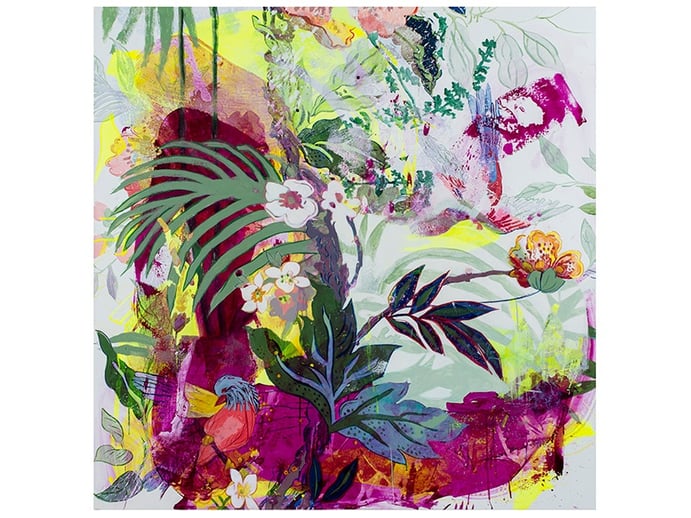 Wave Hill contrasts excitingly with The Florida Everglades, where I was in residency last year. Wave Hill is a cultivated formal garden, with an abundance of ways to maintain a wide range of plant life, while the cypress domes and mangroves of the Everglades subsist on the lowest nutrients possible, and its ecosystems are subtle. Joining these two environments and others is something I dream to realize in new paintings.
Wave Hill contrasts excitingly with The Florida Everglades, where I was in residency last year. Wave Hill is a cultivated formal garden, with an abundance of ways to maintain a wide range of plant life, while the cypress domes and mangroves of the Everglades subsist on the lowest nutrients possible, and its ecosystems are subtle. Joining these two environments and others is something I dream to realize in new paintings.
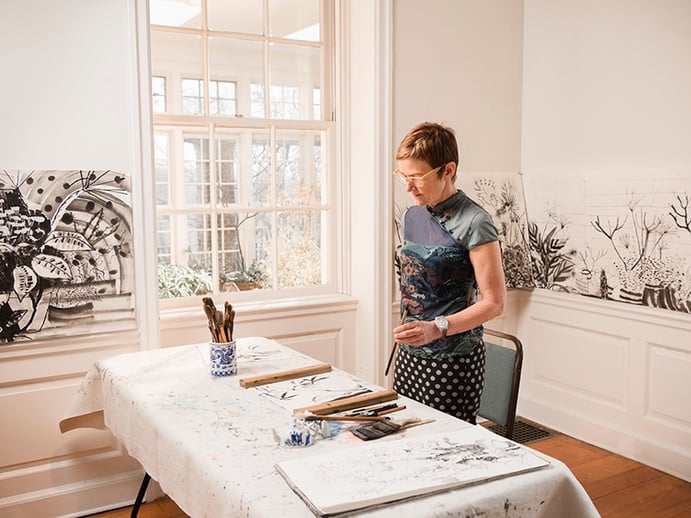 The more I practice ink painting the more I respect its disciplined reminder to remain alert and rhythmic in the balance of elements. The fleeting, gestural quality of touch in scrolls inspires me to maintain a light hand, even on a dense, glittery surface, or to keep areas of the canvas untouched and allow the painting to breathe. I enforce principles more than the appearances of Chinese painting as inspiration for my own language, rather than adopting an already fully developed visual syntax and history.
The more I practice ink painting the more I respect its disciplined reminder to remain alert and rhythmic in the balance of elements. The fleeting, gestural quality of touch in scrolls inspires me to maintain a light hand, even on a dense, glittery surface, or to keep areas of the canvas untouched and allow the painting to breathe. I enforce principles more than the appearances of Chinese painting as inspiration for my own language, rather than adopting an already fully developed visual syntax and history.
Elisabeth Condon's work can be seen at the Flora Fantastica! exhibition at Wave Hill public garden and cultural center in New York from July 16–August 27.






























































































































